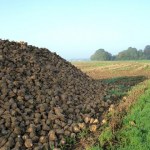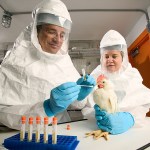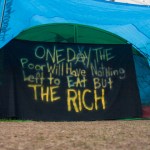Uncategorized
A colleague of mine has left contract archaeology to work for the police as a civil utredare, that is, someone with a university degree who works on crime cases despite not being a policeperson. He told me a pretty neat story about Gubbligan, the Old Man's Gang.
The OMG were three professional bank robbers who never settled down. In the 00s they were in their 40s, 50s and 60s, and still they kept committing armed robberies across southern Sweden. The police were onto them and had begun to tap the gang's cell phones. This way they learned that the OMG had an arms stash out in the woods, where…
What is H5N2 Avian Influenza?
H5N2 is a bird influenza virus that is making news. This mainly affects domestic fowl, and in this sense is not a topic central to 10,000 Birds. But, wild birds are part of the story, and the virus itself has changed and has been known to make wild birds ill. And, of course, the reputation of certain species of birds as troublemakers for humans is a problem in bird conservation, so this is worth watching. Here I have a quick summary which I’m afraid lacks a lot of information that we’d like to have but just don’t....
Please click through to read my latest post…
The American Biology Teacher has hosted a guest editorial by Glenn Branch and Minda Berbeco of the NCSE. The editorial points out that climate science is under a similar sort of anti-science attack as evolution has been for years, though generally with different (less religious) motivations. Also noted is the problem of fitting climate change into the curriculum, especially in biology classes. Indeed, biology teachers are already having a hard time getting the standard fare on the plate. In recent years, for example, the AP biology curriculum has jettisoned almost everything about plants…
In the second novel-length third of Stephen Jarvis's hefty Death and Mr Pickwick, artist and caricaturist Robert Seymour starts in earnest to put ideas together for the Pickwick Papers. Yes, that's right: here (as maybe in reality) it is the illustrator who comes up with the concept for the book, but being dyslexic and proud he doesn't want to write it himself. Narrative pictures with brief “letterpress” text added by someone else afterwards is an established form at the time. Charles Dickens finally makes his entrance on the novel's stage, first as as “Chatham Charlie”, then under his…
You really must check in on the big morality discussion over at Uncommon Descent. Barry Arrington has done another post on the subject. It's just more snarling and buffoonery, but I do suggest browsing the comments. RDFish, the “idiot” who caused Arrington's latest fit of apoplexy, has shown extraordinary patience and lucidity in responding point by point. He's administering quite the spanking, actually. Arrington, for his part, has nothing beyond abuse and insults to offer in reply. He's just making a fool of himself. For a taste, check out this comment from RDFish, and this reply…
I occasionally check in with the pro-ID blog Uncommon Descent, on the off chance they may have said something interesting. Sadly, the blog has mostly fallen on hard times. Nowadays it's mostly just post after post whose only point is to demean and insult people, or to proffer absurd misunderstandings of thermodynamics.
Sometimes, though, they really come through. Every once in a while they present an argument so carefully reasoned, so cogently thought-out, that the rest of us must sit-up and take notice. Folks, one such post has recently appeared. It was authored by Barry Arrington, who…
I have now posted the final POTW for the semester. That's right! After this, there will no more POTWs until September. So go have a look, and tell me what you think.
As long-time readers of this blog with know, I'm a huge supporter of science books. One of my definite soft spots is the annual Lane Anderson Award for the best Canadian science book in both adult and young adult categories. As such I'll point out that the submission deadline for the 2014 award is fast approaching. If you or anyone you know published a Canadian science book in 2014, please consider submitting it for consideration for the award.
The award website is here. Some of my previous posts about the award are here, here, here, here, here, here, here and here.
CALL FOR SUBMISSIONS…
The number one rule of the Taphonomy Club is don't talk about marks on bones ... without placing them in context. Many marks on bones could have multiple causes, such as putative cut marks caused by stone tools on animal bones found on early hominid sites. In that case, hard sharp stony objects in the ground can cause marks that are hard to tell apart from stone tool marks. But when you find almost all the possible stone tool marks in the exact locations they would be if a hominid was butchering or defleshing the animal, then you can assert that that butchery or defleshing with stone tools…
According to the best available research, we are going to have to double food supplies, globally, by 2050. Think about that for a moment. Children born today will be in their 40s at a time that we need to have already doubled food production, yet during the last 20 years we have seen only a 20 percent increase in food supply. Assuming a steady rate of increase in production (which might be optimistic) we should expect to fall far short of demand over the next few decades. This is a problem. The problem is expected to most severely affect poorer people, people in less developed nations, and…
Okay, I'm back from Tennessee. The talk went pretty well, and the conference was a lot of fun. So let's celebrate with another installment of Sunday Chess Problem!
Our last entry featured a series mover. It seemed to be well-received, and they happen to be fairly easy to blog. So let's try another one! The following problem was composed by Josif Krikheli in 1966. It calls for Series Helpmate in 25:
Our last entry called for Series Selfmate, so this one is a bit different. We have seen normal helpmates, in which black moves first and both sides cooperate to create a position in which…
I'll be heading off to Knoxville, Tennessee on Friday afternoon. Saturday morning I will be giving the big keynote talk at an undergraduate research conference at the University of Tennessee. Do you think maybe I'll be talking about the Monty Hall problem? I think maybe I will! So, if you're going to be in the neighborhood, stop by and say hello.
Come to think of it, the last time I was in Knoxville I was attending an intelligent design conference. The highlights are discussed in section two of Among the Creationists. I wrote about it in even more detail in a series of posts at this…
One of the many problems with the essay discussed in yesterday's post is that it was poorly written. Finnis and George seemed to go out of their way to be as unclear as possible, frequently choosing tortured, ambiguous phrasings when clearer options were readily at hand. This is something of an occupational hazard among academics, especially in the social sciences. Too many practitioners seem to think obscurity equals profundity. If you express yourself clearly it is too easy for your critics to spot the shallowness of your ideas.
I recently read a book called Learn to Write Badly: How to…
Okay folks. The ninth Problem of the Week has now been posted. Only one more after this, so enjoy them while they last. I've also posted an “official” solution to Problem Eight, so feel free to have a look at that as well.
It's been complete bedlam at my house lately. I made one of my periodical forays into cultural Judaism this past weekend by hosting a Passover seder. My parents, my brother and sister-in-law and their two kids (ages eight and ten) and some friends, eleven in all, packed into my small house. It was a lot of fun, but stressful too. The poor cats had a rough weekend, since they're morbidly afraid of anyone who isn't me. This was disappointing to my niece and nephew, who had been told that there would be cats to play with.
But that's all behind me now, so it's time to get back to sneering…
Imagine a world where two guys, graduates of the University of Guelph, a mid-sized university in southern Ontario, are able to parlay a series of funny and cool whiteboard-style science explanation YouTube videos into a global science communication empire. Without even "forgetting" to give credit to science illustrators in the process.
Don't imagine too hard, because I think we're almost there.
And what is it about Ontario and humourous science communications anyways? Is it something in the water? At least the most recent incarnation seems to be a little clearer on how things should be done.…
Sorry, I just realized I never got around to posting the link to the new Problem of the Week. I've generally been impressed with the comments that have been left on previous POTWs, so hopefully folks will find this one interesting as well. I think it's a little bit easier than the last two, but you do have to look at it the right way. Good luck!
I really appreciate how all my Internet friends have followed me from major career announcement to major career announcement over the last few years. From my job at Elsevier all the way to last year's temporary detour as Chief Advisor on Science Libraries for the Government of Canada! The last few years sure have been exciting but it's time for a new challenge.
And yes, I'm taking a leap back into the scholarly publishing world. This time I'm starting up my own open access scholarly publishing company to publish in all the STEMM fields with a special focus on computer science, which is, of…
Predatory open access journals seem to be a hot topic these days. In fact, there seems to be kind of a moral panic surrounding them. I would like to counter the admittedly shocking and scary stories around that moral panic by pointing out that perhaps we shouldn't be worrying so much about a fairly small number of admittedly bad actors and that we should be more concerned with the larger issues around the limitations of peer review and how scientific error and fraud leak through that system.
I'm hoping my methodology here will be helpful. I hope to counter the predatory open access (OA)…
In this recent essay at The New York Times, philosopher Gary Gutting argues that the Catholic Church should reconsider its ban on gay sex and its opposition to gay marriage, for explicitly Catholic reasons. He is especially critical of “natural law” arguments against homosexuality.
It’s mostly a sensible essay, I think, but it is not the subject of this post. Instead I shall consider this reply to Gutting, written by John Finnis and Robert George. They were unhappy with Gutting, a philosophy professor at Notre Dame, for being so dismissive of natural law. Sadly, though, their attempted…




